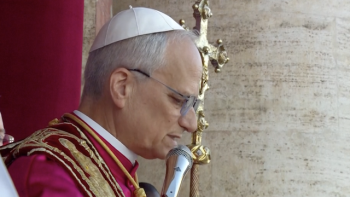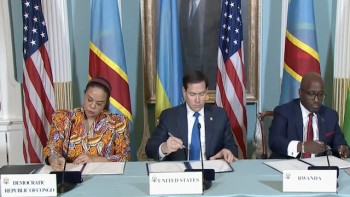From the beginning of the year 2024 to the days leading to June 2024, across the World, general elections have been held. Based on the published results or as the votes are still being counted and the results put together, many challenges have been faced while new firsts were uncovered. In most countries, people are expecting changes, while in some, the situation has not improved and tough days may be coming. AfroAmerica Network has focused on a few elections held or planned in 2024.. Among the elections with several challenges or significant firsts are Mexico, South Africa, India, Senegal, Chad. Meanwhile, other countries, including UK, USA, Rwanda, and Namibia, are expecting key elections. Controversial elections in Rwanda and UK are scheduled for July 2024.
Rwanda and Chad: More years for African Dictators
In two countries, dictators have taken over the institutions and assured to rule, unchallenged, for more years to come. The two countries are Chad and Rwanda.
-Chad:
On May 6, 2024, in the African country of Chad, controversial presidential elections were held. The controversial elections were the result of a constitutional referendum of December 17, 2023, following the death of the dictator Idriss Déby in 2021. His son, Mahamat Déby, who had been serving as a transitional president, ran unchallenged as the candidate of the Patriotic Salvation Movement. As expected, he was declared, or rather he anointed himself, the winner of the elections. Hence, he will rule the country, extending 34 years of dictatorship by the Déby family.
-Rwanda:
In Rwanda, general elections are due to be held on July 15, 2024 to elect the president and members of the Chamber of Deputies. The Rwandan dictator Paul Kagame is expected to win the controversial elections and extend his rule that officially started in 2000 but in reality has been going from 1994. In 2015, when his stated legal rule was about to end, he set up a referendum that approved constitutional amendments allowing him to run for a third term in office in 2017, as well as shortening presidential terms from seven to five years, starting 2024, and then run for three more additional terms.
Senegal and Mexico: Precedents and Firsts
-Senegal:
On March 24, 2024, presidential election presidential elections were held in Senegal. Bassirou Diomaye Faye, running in place of Ousmane Sonko, was elected president. He made a first as the youngest president of Senegal and has committed to supporting and pushing forward the panafrican agenda across the countries in Africa, especially in Mali, Burkina-Faso, and Niger (see here: Africa - Senegal: President Bassirou Diomaye Diakhar Faye Sworn in as Fifth President of Senegal).
-Mexico:
On June 2, 2024, general elections were held in Mexico. The elections included a new president to serve a six-year term, all members of the Chamber of Deputies, all senators. of the Senate of the Republic.
The elections were historic. It was the first general election in Mexico's history in which women were the main contenders for the country's presidency. The two women are Xóchitl Gálvez of the conservative National Action Party (PAN) and Claudia Sheinbaum, of the left-wing party Morena. Claudia Sheinbaum, the former mayor of Mexico City was, as expected, elected to succeed president Andrés Manuel López Obrador.
Claudia Sheinbaum won by a landslide margin of nearly 31 points, becoming both the first female and first Jewish President of Mexico.
Advertisement
Get the following books on Amazon:

Legs of Tornado: The Human Who Outran the Wind, an African tale about a human from a humble upbringing who outran the wind, defeated evil spirits, overcame his fate, became a respected clan chief, and triumphed ever after.
Click Here to Get the books: Even Roosters Dream to Fly and Legs of Tornado
Even Roosters Dream to Fly along with Legs of Tornado are also available on Amazon worldwide and soon to several other platforms:
For more on the book, the author, the inspiration of the stories, Visit the author website here
South-Africa, India, and UK: Controversial leaders in elections and Lost of Momentum.
- South Africa:
On May 29, 2024, the general elections were held in South Africa, the seventh time such elections were held under the conditions of universal adult suffrage since the end of the apartheid era in 1994. The general elections consist of electing a new National Assembly and the provincial legislatures in the nine provinces. This year, for the first time since post-apartheid election in 1994, the support for the African National Congress (ANC) was significantly challenged, especially due to infighting, economic crises, corruption, and crime, and other major issues. ANC was split into two, due to the conflicts between former president Jacob Zuma and incumbent President Cyril Ramaphosa.
The support for the African National Congress (ANC) has significantly declined. Although ANC still remains the largest party it has lost the parliamentary majority held since the inaugural post-apartheid election in 1994. The center-right Democratic Alliance came in second, whereas the new uMkhonto we Sizwe (MK) party, led by former president Jacob Zuma, came in third.
The ANC finished with 40% of the votes, down from 58% at the previous election, and hence won 159 seats in the 400-seat parliament, down from 230 in the previous assembly.
After the elections, most of the former ANC electors, who switched to other parties or did not to vote, blamed President Cyril Ramaphosa for high levels of corruption, unemployment and crime.
The DA party remains the second-largest party in the parliament, holding 87 seats, and has indicated that it is open to talks with ANC to form a coalition. However, the DA white majority party still opposes some of the ANC's key priorities, especially the black empowerment policies aiming at giving South African black people economic opportunities, following their exclusion during the racist apartheid era, and the National Health Insurance (NHI) Bill aimed at providing universal healthcare for all, including the underprivileged black south-africans.
The MK has also said it would be prepared to work with the ANC, but only if Mr Cyril Ramaphosa is out. In fact, Jacob Zuma has been in a bitter power struggle with Cyril Ramaphosa since 2018, when the later replaced him as both the south-african president and the ANC leader.
-India:
From April 19, 2024 to June 1, 2024, general elections were held in India in seven phases, to elect all 543 members of the Lok Sabha, constitutionally the House of the People. More than 968 million people out of a population of 1.4 billion people, or around 70% of the population, were expected to vote. The major actors are the following:
- BJP: The Bharatiya Janata Party which governs India, under Prime Minister Narendra Modi
- INDIA: Indian National Developmental Inclusive Alliance, a coalition of opposition parties
- NDA: National Democratic Alliance, a coalition of parties led by the BJP.
The incumbent and very popular prime minister Narendra Modi from the BJP party, ran for a controversial third consecutive term, in an election that was criticized for the lack of action on alleged hate speeches, continued class discrimination against the Black Indians, known as or Dalit peoples and other scheduled casts (SC) in Tamil Nadu and across India, religious tensions particularly against Indian Muslims, and the suppression of political opponents.
The results counting of the votes will start on June 4, 2024.
-United Kingdom:
The United Kingdom has been going through rough times, which led to the decision by the current Prime Minister, Rishi Sunak, to call forr new elections. The 2024 United Kingdom general elections are scheduled for Thursday, 4 July 2024. The elections will be critical as they will determine the composition of the House of Commons, hence the new Government of the United Kingdom, including the Prime Minister. The general elections will be the first since the UK withdrew from the European Union on January 31, 2020 and under the Dissolution and Calling of Parliament Act 2022.
The main competition will be between the the governing Conservative Party led by Rishi Sunak and the opposition Labour Party led by Keir Starmer. Rishi Sunak has been very controversial following the support for the Rwanda asylum plan, which provides that any asylum seeker entering the UK "illegally" after 1 January 2022, from a safe country could be sent to Rwanda and have their asylum claims processed there, rather than in the UK.
On 15 November 2023, the UK’s Supreme Court declared the policy unlawful because Rwanda was not a safe country, even for asylum seekers.
In response to the judgment of the Supreme Court, the government led by Rishi Sunak published a new treaty with Rwanda. The new treaty allegedly provided for additional safeguards, despite the on-going war with the Democratic Republic of the Congo under the cover of M23 rebels and the Republic of Burundi, under the cover of RED TABARA. Hence the UK government introduced a new legislation, declaring that Rwanda was a safe country for asylum seekers. On April 25, 2024, the UK’s treaty with Rwanda was ratified and the Safety of Rwanda (Asylum and Immigration) Act 2024 became law. Then, Prime Minister Rishi Sunak announced that the first flights to Rwanda would take off by around mid-July 2024. But facing several challenges and opposition, the government led by Rishi Sunak called a general election for July 4, 2024. Hence, if he looses election, the controversial treaty with the Rwandan government is expected to fail.
The probabilities of the Conservative Party led by Rishi Sunak losing elections are very high. In fact, in 2022 and 2023 local elections the Conservatives have showed poor performance, whereas Labour and the Liberal Democrats made significant gains from Conservatives, often by very wide margins. Even in the 2024 local elections, the Labour and the Liberal Democrats parties made further gains and in upcoming elections a record number of Conservative MPs are not standing for re-election.
Namibia: Resilient Democracy
In Namibia, the general elections will be held on November 27, 2024, Since gaining independence from the apartheid South Africa in 1990, Namibia has maintained a path on democracy. The upcoming election will be the country's seventh general election since independence from the apartheid South Africa.
The citizens of Namibia will elect a new President and a new National Assembly. The new president will succeed the interim president Nangolo Mbumba. Nangolo Mbumba, then vice-president, took over from late president Hage Geingob when he died on February 4, 2024 while receiving cancer treatment (see Africa: Namibia Independence and Revolution Leader and President Hage Geingob dies at 82 Years Old.)
. Serving the remainder of the term, which expires on March 21, 2025. Nangolo Mbumba has declined to run for president in the November 27, 2024 elections.
© 2024 AfroAmerica Network


















